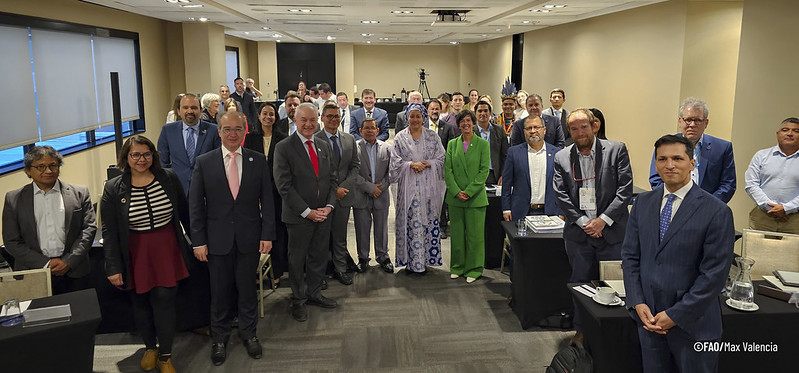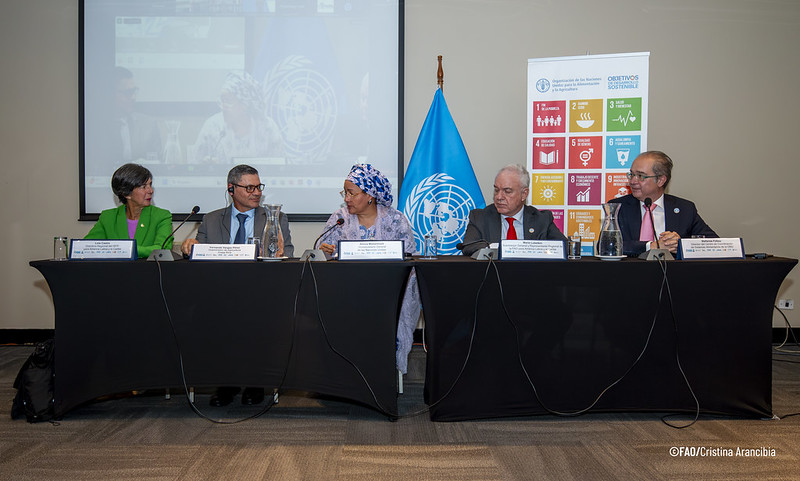SEED FUNDING JOINT PROGRAMMES
Cambodia
Transforming Cambodia’s food systems to become more sustainable, inclusive, and resilient


PROJECT TITLE | Transforming Cambodia’s food systems to become more sustainable, inclusive, and resilient |
| Context | Cambodia’s National Pathway is the outcome of an extensive consultation process, involving more than 2,000 people throughout thirty dialogues, which identifies four priority areas, namely healthy diets for all, empowerment of youth, women and vulnerable groups, resilient livelihoods and food systems, inclusive governance. Acknowledging the risks posed by climate change to hard won development gains and as a co-founder of the Alliance of Champions for Food Systems Transformation, Cambodia is prioritizing the integration of climate change and food systems transformation, building coherence across the agendas. The Council for Agricultural and Rural Development, the government agency coordinating food security and nutrition initiatives in Cambodia, is leading collaborative efforts to translate national aspirations into concrete action. |
| PUNOs | FAO, WFP, UNICEF |
| Contribution to SDGs | SDG 2 Zero Hunger |
| Contribution to other SDG transitions | Climate, biodiversity, pollution |
| Duration | August 2024 – July 2025 |
| Expected financial leverage | $3 million |
| Alignment with SG Call to Action | Policy integration; Food systems governance; Inclusive and participatory design; Private sector engagement |
| Outcomes | The Joint Programme fosters an enabling environment for food systems transformation by enhancing national capacities and policy frameworks, identifying opportunities to unlock financial streams, and strengthening advocacy efforts for food systems transformation. The JP provides crucial support to the alignment of the climate and food agendas, accelerating progress towards resilient, sustainable and inclusive food systems. |
| Partners | Council for Agricultural and Rural Development (CARD) will be the main government counterpart and will coordinate the government activities in conjunction with other key Ministries, including:
|
| Outputs |
|
Advancing sustainable development through food systems transformation in Latin America and the Caribbean

Santiago, Chile - The UN Food Systems Coordination Hub, in close collaboration with the UN Interagency Food Systems Task Force for Latin America and the Caribbean (LAC), recently convened two key events at the LAC Sustainable Development Forum 2024. These gatherings emphasized the transformative potential of food systems in the region, underscoring the need for collaborative approaches to achieve the Sustainable Development Goals (SDGs).
Food systems transformation as an accelerator for the SDGs in the LAC region
On April 15, 2024, stakeholders from across the LAC region gathered to engage in a side event titled "Food Systems Transformation as an Accelerator for the SDGs." This event, drawing on outcomes from significant global forums such as the UN Food Systems Summit Stocktaking Moment (UNFSS+2), the SDGs Summit, and COP28, explored the holistic integration of climate action, resilience building, and enhanced food security and nutrition.
The discussion emphasized the importance of a multi-sectoral approach to food systems transformation to integrate various SDGs, particularly those aimed at ending poverty, achieving zero hunger, and enhancing climate action. Ms. Lola Castro, representing the LAC Food Systems UN Task Force, highlighted the challenges of the high cost of healthy diets in the region—the most expensive in the world—and discussed innovative social protection measures aimed at mitigating these costs and reducing food insecurity, despite economic challenges.
Mr. Mario Lubetkin, FAO Regional Representative for LAC, drew attention to the slight decrease in hunger noted in the SOFI 2023 report. However, he acknowledged that significant challenges remain due to climate change, economic disparities, and geopolitical tensions. The event underscored the active participation of regional actors in the UNFSS+2 and the broad endorsement of the UAE Declaration on Sustainable Agriculture, which emphasizes the critical role of agriculture in climate resilience.
Latin America and the Caribbean Food Systems Transformation Progress Review
The following day, National Convenors from across LAC convened to assess the progress in implementing national food systems transformation pathways since the UNFSS+2. This gathering served as a follow-up to the LAC Regional Preparatory Meeting held in April 2023, with a focus on addressing common implementation challenges, fostering peer learning and sharing best practices.
Ms. Lola Castro reiterated the pivotal role of the Task Force in supporting 16 countries in the region through webinars, capacity-building activities, and facilitating access to financing. Mr. Stefanos Fotiou, Director of the UN Food Systems Coordination Hub, congratulated the region for its exemplary implementation efforts and called for greater involvement from international financial institutions and the private sector to catalyze these initiatives.
The panels highlighted the convergence of food systems transformation with climate action, noting the Hub’s new Convergence Initiative as a supportive tool in these efforts. The discussions also featured innovative solutions, such as food procurement for school feeding programs, insurance schemes for mitigating climateimpacts, and initiatives to reduce food waste and redistribute surplus food, demonstrating significant regional achievements.
Closing remarks and future outlook

In her closing remarks at the regional meeting, H.E. Ms. Amina Mohammed, UN Deputy Secretary-General, commended the region for its leadership and contributions to global food systems transformation. She underscored the importance of regional collaboration in developing a collective vision for sustainable, healthy, and resilient food systems, and called for intensified efforts to strengthen governance systems, foster innovation, and secure necessary funding.
Looking forward, LAC is poised to continue its proactive approach to food systems transformation. As the region prepares for future meetings, such as the UNFSS+4 in 2025, there is a clear directive to harness the momentum gained to advocate for substantial and sustainable changes. These discussions are not merely preparatory; they represent a call to immediate action, aiming to solidify a collective vision and operationalize a roadmap that will lead to a healthier, resilient and equitable food future for all in Latin America and the Caribbean.
